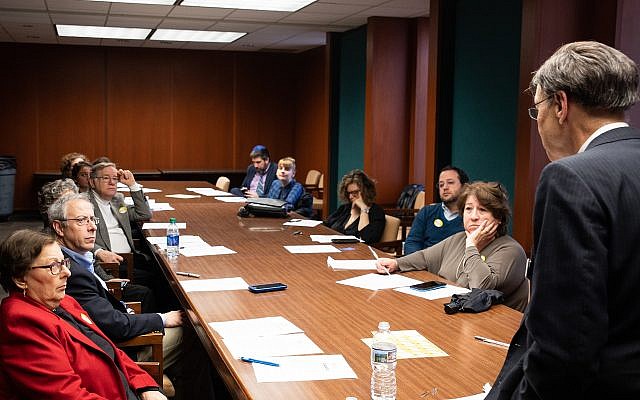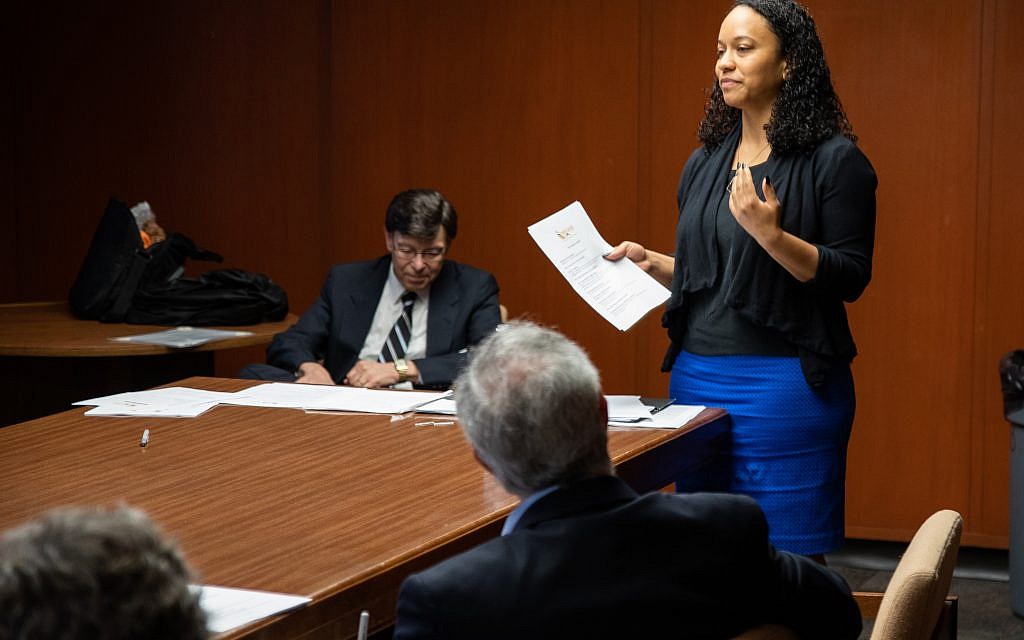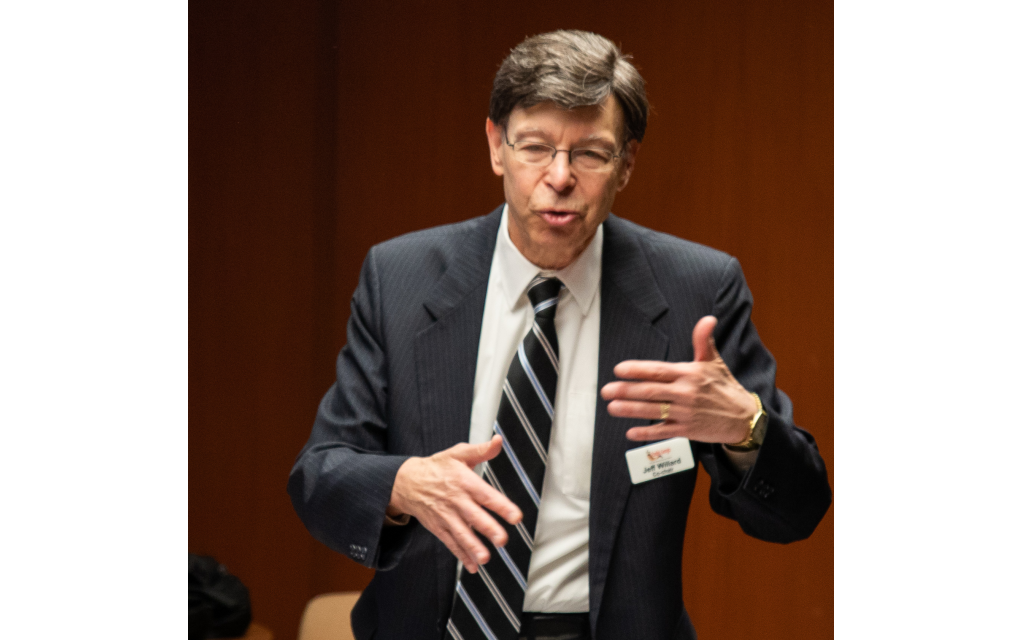Tzedek Lobby Day Empowers Jews to Share their Voices
The leading Reform Jewish social justice advocacy group at the Georgia Capitol, Tzedek Georgia, invited community members to attend its “Lobby Day.”

Tzedek Georgia, the leading Reform Jewish social justice advocacy group at the Georgia Capitol, on Feb. 28 invited community members to attend its “Lobby Day.” Those present learned about issues of importance to Tzedek, bills in both the Georgia Senate and House of Representatives. They gained lobbying skills and spoke face-to-face with legislators.
Tzedek Co-Chairs Jeff Willard and Rabbi Brad Levenberg of Temple Sinai were on hand at the Coverdell Legislative Office Building on a rainy morning. Levenberg kicked off the day, offering a blessing for social justice, along with his hopes for those in attendance.
“Hopefully through our efforts today we can make our state look a little more like we know it should,” he said.
Following his remarks, guest speakers each took their turn discussing bills of importance. First was Ruby-Beth Buitekant, public policy fellow at the Southern Center for Human Rights, who discussed House Bill 340/Senate Bill 164, which would undo recent cash bail reforms in the City of Atlanta and prevent any other city from ending cash bail.
“One of these things we focus on at the Southern Center for Human Rights is the criminalization of poverty,” she said. “We call it wealth-based detention. It’s detention solely based on the fact that you cannot pay.”

Following Buitekant was Shelley Rose, deputy regional director for the Anti-Defamation League, who discussed a hate crimes legislation bill, HB 426. Georgia is only one of five states that lacks hate crimes legislation, meaning that crimes specifically targeting people due to their race, religion, sexuality or other protected factors garner no harsher penalties.
“What we know is that if it stops just one hate crime, this legislation is worth it,” Willard said.
Rose added that it was important HB 426 pass before March 7, or “crossover day,” the last day for bills to move from one legislative body to the other, a necessary step in becoming law.
After the guest speakers, Willard walked through the other items on Tzedek Georgia’s 2019 Legislative Agenda. The list included bills addressing gun laws, medical marijuana, sex trafficking, Medicaid expansion and religious freedom restoration.
Three of the items on the agenda addressed gun legislation. The first, HB 2, allows for individuals to carry guns without any licensing required.
“The first is one we obviously oppose. They want to get rid of licensing for all guns, and that’s going in the wrong direction,” Willard said.

The second is a bill Tzedek supports that closes the “gun show loophole,” which allows people to purchase firearms at gun shows without a background check. “People should not be able to go to a gun show to avoid the law,” Willard said.
The third, which seems unlikely to pass, would repeal a prior law allowing students on college campuses to carry firearms.
Also on the list was HB 481, known as the “heartbeat” bill, which aims to shorten the time during which abortions are legal. Currently, they are legal until the 20-week mark, but the proposed bill would prevent abortions as soon as a heartbeat is detected, which can be as early as six weeks.
“Now what they want to do is say that at the detection of a heartbeat you can no longer have an abortion, which is at six weeks,” Willard explained. “What this law does is essentially get rid of abortion, in any practical sense.”
Following questions and clarifications from those in attendance, Willard also provided some tips and tricks for those lobbying legislators. He provided a plethora of advice for how to speak with representatives, both liberal and conservative.
Willard’s five key tips are:
• Don’t assume you can’t influence legislators.
• Know the representative/senator. Start with your own and then move on to members of committees overseeing bills important to you.
• Know your goal. You’re trying to convince them to vote the way you want them to vote.
• Research. Know the topic and the bill you’re discussing and don’t be afraid to say when you don’t know but tell them that you’ll find the information and follow up with them.
• Consider that person’s values. The majority of legislators in Georgia are conservative, so make sure your talking points speak to traditional, conservative values.
From there, the group migrated to the Capitol itself to speak with representatives and show off some newfound skills as well as share their thoughts with policymakers.
Willard said he viewed the day as a success, and that participants were able to see firsthand the difference they can make in shaping the future of Georgia.
“The Torah instructs us to pursue justice and do G-d’s work in this world. What is that work?” Willard asked. “It is to speak up for the widow, orphan and stranger. In short, it is the pursuit of social justice. … That is exactly what we were doing today.”



comments